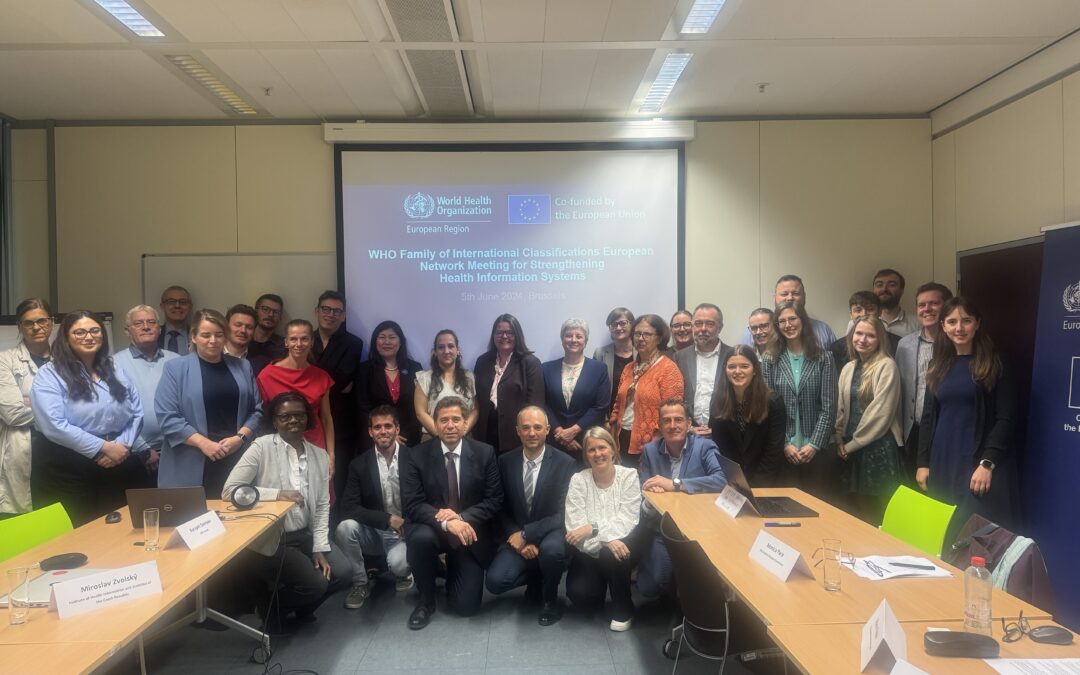On 5 June 2024, a WHO-FIC European network meeting was organised by the WHO Europe Regional Office, in order to strengthen health information systems and enhance health data governance in the WHO Europe region Member States. The meeting took place at the WHO Europe Regional Office in Brussels.
The WHO Family of International Classifications (WHO-FIC) and Terminologies includes:
- The International Statistical Classification of Diseases and Related Health Problems (ICD),
- The International Classification of Functioning, Disability and Health (ICF), and
- The International Classification of Health Interventions (ICHI).
These Reference Classifications serve as the global standards for health data, clinical documentation and statistical aggregation and are an important component in order to strengthen, modernise and digitalise Health Information Systems (HIS), which are recognised as priority areas of focus for the European Programme of Work (2020–2025). The latest version of the ICD, ICD-11, was adopted by the 72nd World Health Assembly in 2019 and came into effect on 1st January 2022. However, in the WHO European region, many countries and healthcare centres that generate healthcare data face difficulties with the successful adoption and implementation of the WHO-FIC for many reasons, including lack of capacity and knowledge, as well as lack of resources, including financial and human resources.
The adoption and implementation of the WHO-FIC reference classifications require continuous capacity-building efforts and collaboration at local, national and international levels. The objectives of the meeting included:
- Promote WHO-FIC reference classifications, with a specific focus on ICD-11, within European institutions, expert societies, and WHO European Member States;
- Provide an update on the current status of ICD-11 implementation and share details about the implementation plans within the WHO European Region;
- Discuss the use of WHO classifications and terminologies and their relationship with other terminologies in the overall context of digital health information system projects and initiatives, and data streams and use;
- Encourage collaboration and involvement of expert medical societies to contribute to the content and definitions of clinical terminologies and classifications.
EFIC had the opportunity to attend the meeting, bringing the clinical perspective of ICD-11 to the discussion, with Prof. Patrice Forget providing an insightful online presentation on the topic (please find it here) and with Dr. Beatrice Korwisi, providing a presentation (please find it here) on the evidence that supports ICD-11 implementation, specifically highlighting why chronic pain is important and relevant in such a context. Furthermore, EFIC had a chance of highlighting the advocacy efforts made by the Societal Impact of Pain (SIP) Platform, in supporting the implementation of ICD-11 at national level. A fruitful meeting that served to forge alliances and build collaboration capacity in a very important topic such as ICD-11.
